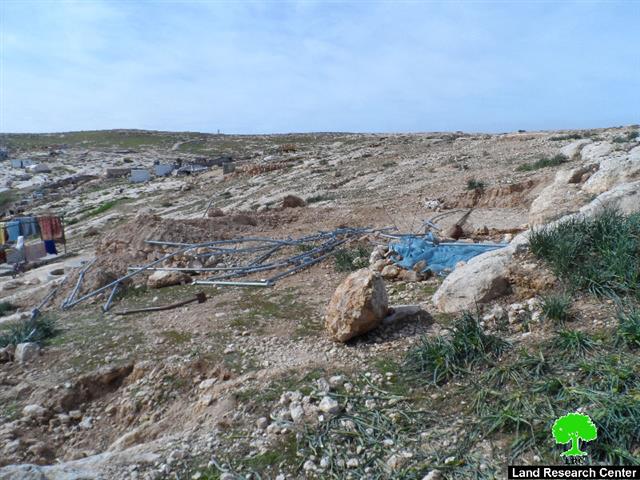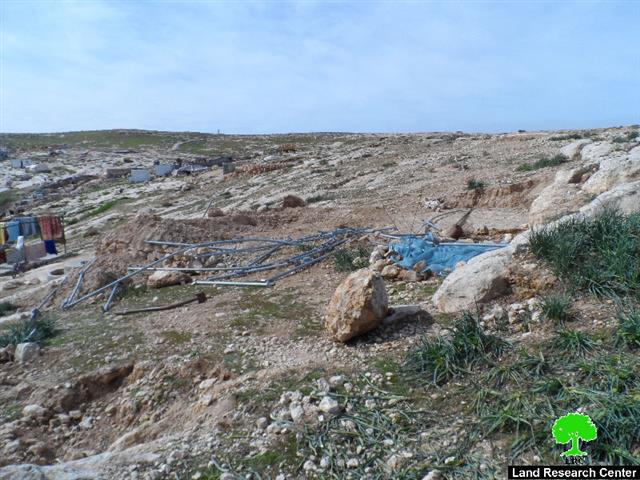- Violation: demolishing a tent
- Location: Al-Mafqara hamlet- Yatta
- Date: January 24, 2016
- Perpetrators: Israel Civil Administration and army troops
- Victims: Citizen Mufeed Hamamdih
Details:
The Israeli Occupation Forces demolished on January 24, 2016 a residential tent owned by Citizen Mufeed Hamamdih in the Yatta hamlet of Al-Mafqara.
Mufeed's father, Qasim Hamamdih, said that a massive force from the occupation army accompanied by a staff from the Civil Administration raided the area and JCB dozer brought the tent down on the claim of "unlicensed construction".
The 50m2 tent was supposed to be home for Mufeed and his two member family. The tent being finished in 2015 cost 7,000 NIS; the expenses covered the shade cloth and metal pillars.
It should be marked that the Israeli occupation authorities have previously demolished a tent for citizen Mufeed in the exact same location.
Land Research Center LRC sees that demolitions contradict with all of the International conventions and Humanitarian laws including:
- Article 17 of the (1948) Universal Declaration of Human Rights stating: “Everyone has the right to own property alone as well as in association with others. No one shall be arbitrarily deprived of his property.”
- Section ‹G› of article 23 of the (1907) The Hague Conventions asserting: “In addition to the prohibitions provided by special Conventions, it is especially forbidden to destroy or seize the enemy's property, unless such destruction or seizure be imperatively demanded by the necessities of war.”
- Article 53 of the Geneva Fourth Convention (1948) declaring: “Any destruction by the Occupying Power of real or personal property belonging individually or collectively to private persons, or to the State, or to other public authorities, or to social or cooperative organizations, is prohibited, except where such destruction is rendered absolutely necessary by military operations.”
- Section 1, Article 11 of the International Covenant on Economic, Social and Cultural Rights (1966): “The States Parties to the present Covenant recognize the right of everyone to an adequate standard of living for himself and his family, including adequate food, clothing and housing, and to the continuous improvement of living conditions. The States Parties will take appropriate steps to ensure the realization of this right, recognizing to this effect the essential importance of international co-operation based on free consent."
Prepared by
The Land Research Center
LRC













